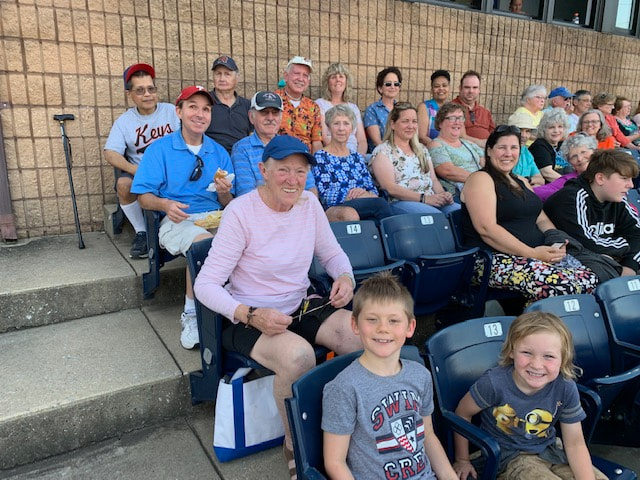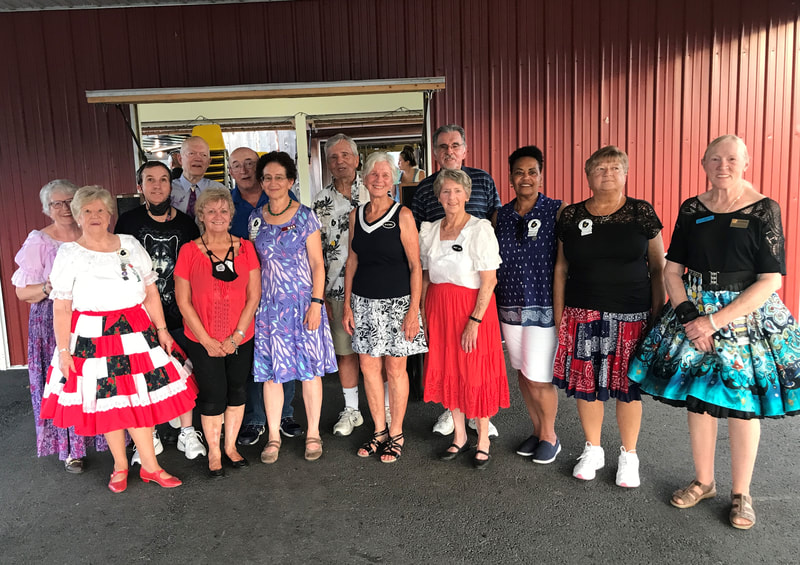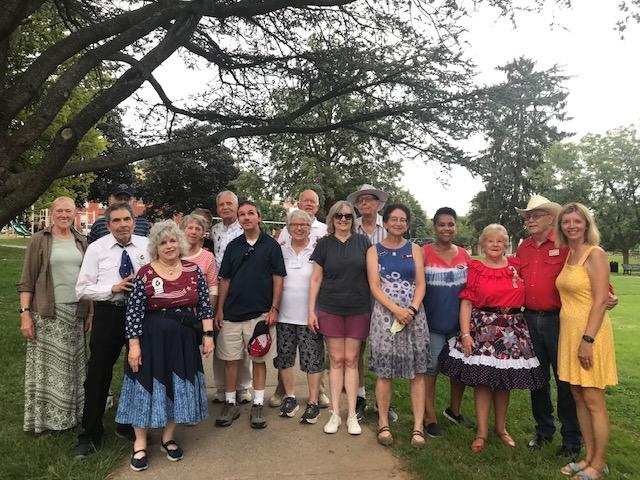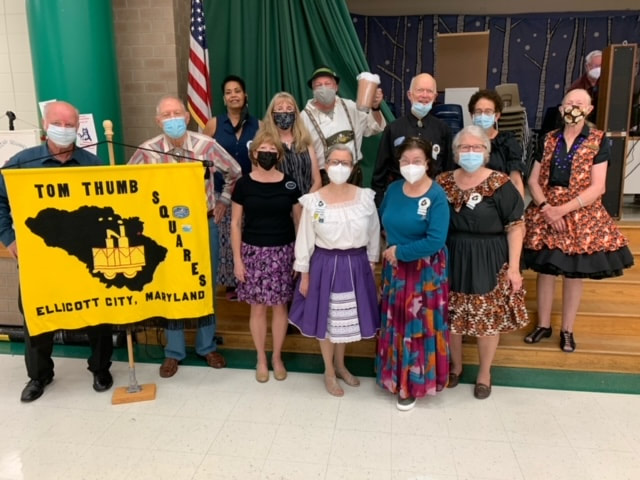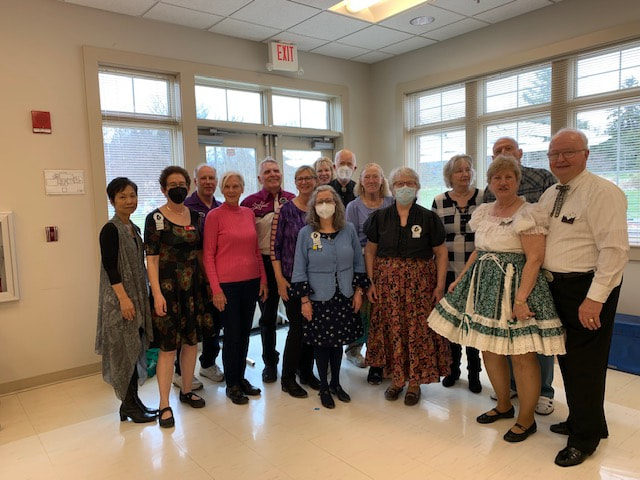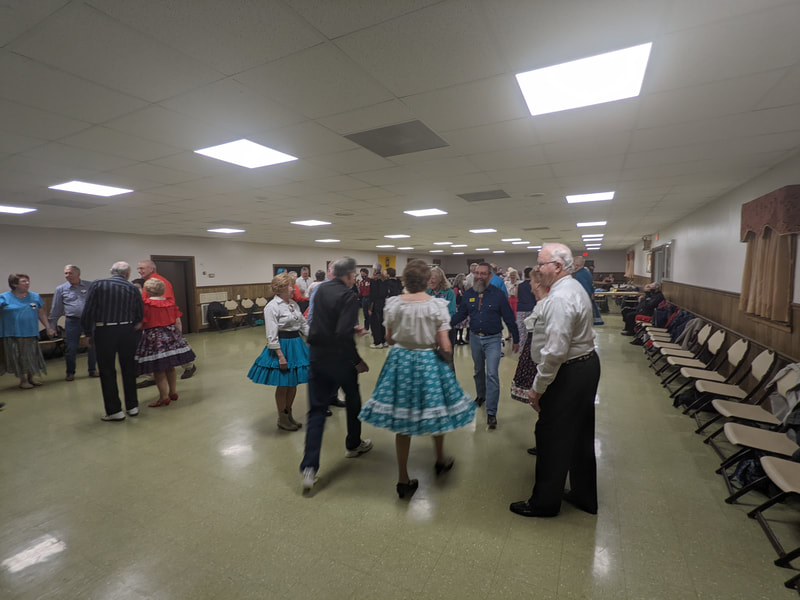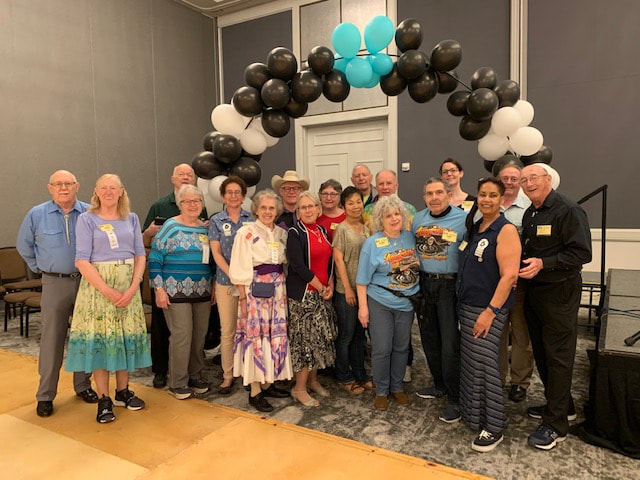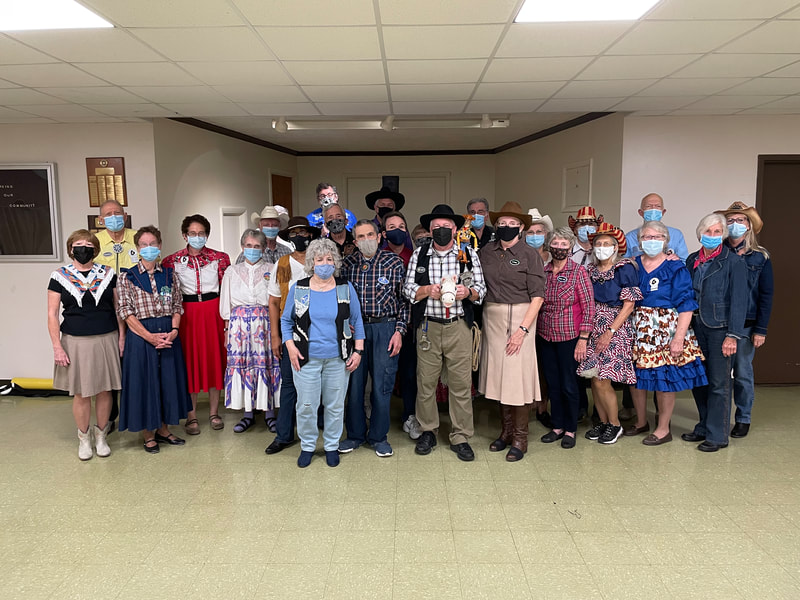Website last updated on Thursday July 25th, 2024 at 4:00am by FCP Webmaster Donald Barber
sample club event portfolio
A small sample of some of the club events over the years. Hover over a photo for event info. Click on a photo to enlarge it.
recent news and information
Monday 8/19 Ledo Restaurant FundraiserPlan to attend this Club social event and have dinner at the same time. It is the annual fundraiser where the Club receives 20% of the proceeds. The event is from 5:00pm to 8:00pm. You can arrive at any time and stay until whenever. You can also order takeout. If ordering takeout mention the Club name to make sure we receive the 20%. The restaurant is located at 490 Prospect Blvd in the shopping center at the intersection of Route 15 and South Jefferson St.
|
friday 8/23 BrADDOCK HEIGHTS VILLAGe demoDATE: Friday, August 23
TIME: 5:15 until approximately 6:15 ADDRESS: 4823 Schley Avenue in Braddock Heights (not Schley Ave in Frederick City) CALLER: Dan Grimes ATTIRE: comfortable dance clothes. Your square dance shirt will look nice at a demo if you so desire! We will demo after one tip. After that, we will invite interested participants to dance with us and to learn some of the basic calls. WE NEED RSVPs! Please let me know if you are interested in participating in this event. |
2024-2025 CLUB dance schedule
The 2024-2025 club dance schedule features alternating Sundays and Fridays beginning on Sunday September 8th. To view the schedule click on the following link: 2024-2025 Schedule
2024-2025 FCP Square Dance Class
To see the 2024-2025 Dance Class Schedule click on the following link: Dance Class
summer 2024 club events
MOST RECENT CLUB EVENTS
sunday 7/7 ice cream social dance
There were 4 squares of revelers at the Ice Cream Social Dance on Sunday 7/7 to close out the HOT! HOT! HOT! July 4th extended weekend. As you can see from the photos, there was a plethora of Ice Cream and associated toppings at the two tables. Your Webmaster especially liked the shredded cocoanut topping with an added touch of chocolate syrup. Of course he had it ALA MODE style with a slice of apple pie underneath. Can anyone say OINK! OINK!.
As a side note, your Webmasters Brother Bob was a Special Guest Visitor. He came all the way from Salisbury Maryland this past weekend for the purpose of attending this Ice Cream Social Dance. I kiddingly asked him if there were any Baskin Robbins in Salisbury! Also, in a very kind and generous gesture, he donated $40 to the cause which enabled us to purchase all of the Ice Cream and plates for the event. Of course, I asked our benefactor if he wanted to join the Club. A special thanks goes out to Bob from the Club Members and Guest Visitors.
As a side note, your Webmasters Brother Bob was a Special Guest Visitor. He came all the way from Salisbury Maryland this past weekend for the purpose of attending this Ice Cream Social Dance. I kiddingly asked him if there were any Baskin Robbins in Salisbury! Also, in a very kind and generous gesture, he donated $40 to the cause which enabled us to purchase all of the Ice Cream and plates for the event. Of course, I asked our benefactor if he wanted to join the Club. A special thanks goes out to Bob from the Club Members and Guest Visitors.
next club EVENTS
To get into the mood for the Summer Workshop #1, click on the arrow on the left side of the audio link below.
SUNDAY 7/28/24 down on the farmTo get into the mood for the Down On The Farm Dance, click on the arrow on the left side of the audio link below.
7/31 - wednesday WORKSHOPSUNDAY 8/4/24 polka dots danceTo get into the mood for the Polka Dots Dance, click on the arrow on the left side of the audio link below
SUNDAY 8/18/24 favorite T-Shirt DANCE8/21 - wednesday WORKSHOP |
SQUARE DANCING TIDBITSbenefits of square dancingClick on the following link to read about the many benefits derived from a regular square dancing routine. Benefits Evolution of square dancing (1940-1960)Click on the following link for a YouTube video on the evolution of square dancing and many other square dancing videos. SquareDancing history of square dancingThe origins of Square dances can be traced back to steps and figures used in traditional folk dances and social dances from many countries. One of the earliest influences may have been the Morris dance, an English dance for six men involving a line formation and energetic steps.[6] This dance is closely related to another ancestor of square dancing, English country dance, which included a variety of dances for groups of couples arranged in circles, lines, or squares.[6] In 1651, John Playford published 105 of these dances in The English Dancing Master, eight of which are square dances exhibiting concepts still in use, such as the head couples performing an action and the side couples repeating it.[7] Three of the dances, such as "Dull Sir John", specifically use the term square dance in the phrase, "A Square Dance for eight thus".[8] In the early 1800s, English country dances merged with French dances to form the quadrille, a dance for four couples in a square.[6] These dances further evolved in America, where they arrived with European settlers.[9] After the American Revolution, the quadrille became especially popular.[10] Quadrilles were originally danced from memorized steps and sequences, but as African American slaves played music for the dances, they began calling out the steps.[9] This practice became common by the early 1900s and gave rise to the modern caller.[9] Between 1940 and 1960, modern western square dance evolved from the western style of traditional square dance that had formed in the United States. Traditional western square dancing was promoted beginning in the 1930s by Lloyd Shaw, who solicited definitions from callers across the country in order to preserve that dance form and make it available to other teachers.[4] The American folk music revival in New York City in the 1950s was rooted in the resurgent interest in square dancing and folk dancing there in the 1940s, which gave musicians such as Pete Seeger popular exposure. Dancer Etiquette BrochureRecently added to the ABOUT page is the Dancer Etiquette brochure. This brochure provides the basic Code of Ethics and Codes of Conduct expected from dancers at the various square dancing functions and events. To go to the brochure click on the following link: BROCHURE where's the dance?If your upcoming plans include travel or you just want to visit other dance clubs near your home club, then the "Where's The Dance" web site is for you. This web site shows all of the Square Dances within a specific radius of where you are. There are a few other options to even further narrow the dance selections for you. To visit this valuable square dance web site click on the following link: Where's The Dance? dance lessons linkStudents or anyone else who wants to review square dance calls can click on the following link to an excellent website that demonstrates Mainstream and Plus calls. SquareDanceLessonVideos ODE To square DancingThe time is now and the square dancing is great So grab your spouse or friend and even your date Then head to the floor with your squaring mate And dance to the cadence that the callers dictate The squares stand ready for your dancing crave You can relay the deucy after a step to a wave Then chain down the line if you dare to be brave Square dancing in Frederick is the latest rave Seamless moves are in sync with the callers refrain Head ladies go center with a teacup chain It's friendship set to music while using your brain Just remember to listen and stay in your lane Mainstream and Plus are two levels to learn Then DBD and Advanced get your legs to churn With the steps and calls so easy to discern So promenade in style whenever your turn Spread the word around so more people know And invite them to your local square dancing show We would like our classes to continually grow When eager new students join the dancing flow Let the resurgence begin on the dancing floor With the mixing of the new and the current core Let's breakdown the barriers and open the door As we celebrate the tradition with all of its lore Donald Barber Frederick County Promenaders Website Master, Ode Writer |

